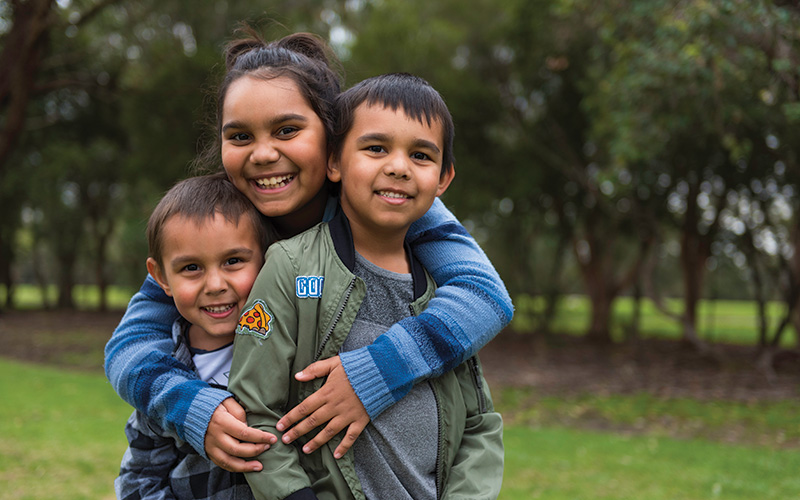Search

The Institute's Standards for the Conduct of Aboriginal Health Research outline our ways of working with Aboriginal communities and peoples.
Research
A model of population dynamics with complex household structure and mobility: implications for transmission and control of communicable diseasesHouseholds are known to be high-risk locations for the transmission of communicable diseases. Numerous modelling studies have demonstrated the important role of households in sustaining both communicable diseases outbreaks and endemic transmission, and as the focus for control efforts. However, these studies typically assume that households are associated with a single dwelling and have static membership.
Research
Vitamin D content of wild-caught traditional foods collected on Nyoongar Country in Western AustraliaLow vitamin D status and intake are prevalent among the Australian population, including Aboriginal and Torres Strait Islander peoples. We hypothesised that some traditional foods could contain vitamin D, and measured vitamin D in foods from Nyoongar Country, Western Australia. Samples of kangaroo, emu, squid/calamari and lobster/crayfish were collected and prepared by Aboriginal people using traditional and contemporary methods.
Research
Indigenous infants in remote Australia retain an ancestral gut microbiome despite encroaching Westernization
Studies of traditional Indigenous compared to 'Western' gut microbiomes are underrepresented, and lacking in young children, limiting knowledge of early-life microbiomes in different cultural contexts. Here we analyze the gut metagenomes of 50 Indigenous Australian infants (median age
Research
Cardiometabolic Biomarkers and Prediction of Kidney Disease Progression: The eGFR Cohort StudyTraditional markers modestly predict chronic kidney disease progression in Aboriginal and Torres Strait Islander people. Therefore, we assessed associations of cardiometabolic and inflammatory clinical biomarkers with kidney disease progression among Aboriginal and Torres Strait Islander people with and without diabetes.
Research
Prevalence of type 2 diabetes among global Indigenous adult populations: a systematic reviewDespite evidence documenting high prevalence of type 2 diabetes among several Indigenous populations, a comprehensive systematic review of type 2 diabetes among global Indigenous Peoples has not been recently conducted. Our aim was to report region-, time-, age- and sex-specific type 2 diabetes prevalence among Indigenous adult populations globally.
Research
Trends in incident acute rheumatic fever or rheumatic heart disease in Indigenous youth in Western Australia: a retrospective cohort studyTo determine age-specific and age-standardised incidence trends of acute rheumatic fever (ARF) or rheumatic heart disease (RHD) among Indigenous Western Australians aged less than 35 years of age.
Research
Berrembi Jarragboo-Boorroo Wajawoorroo Men'Gawoom Gijam (Gija Healthy Skin Story): Two-Way Learning for Healthy SkinRemote-living Aboriginal children in Australia contend with higher rates of skin infections than non-Indigenous children. This work was embedded within a stepped-wedge, cluster randomised controlled trial aiming to halve the rate of skin infections in remote Kimberley communities. It outlines and reflects upon the co-development of a health promotion resource in partnership with the East Kimberley community of Warmun, whilst understanding community perceptions of its impact.
Research
Islet autoimmunity in young First Nations women with prediabetes and type 2 diabetesType 1 diabetes in First Nations peoples is low yet type 2 diabetes is at epidemic proportions. This study aimed to determine the prevalence of islet autoimmunity in First Nations women with dysglycaemia and its association with clinical features.
Research
‘I have to jump like a kangaroo … I have to slither like a snake’. A qualitative evaluation of elder-led art workshops in the child protection sectorIndigenous peoples globally have incurred significant harm resulting from colonisation and the forced removal of children from their families, culture, communities and Country. Over the last two decades in Australia, there have been calls for significant reform and there has been a raft of policy changes in child protection services. However the problems are intractable, and the numbers of Indigenous children being removed from their families continues to rise.
